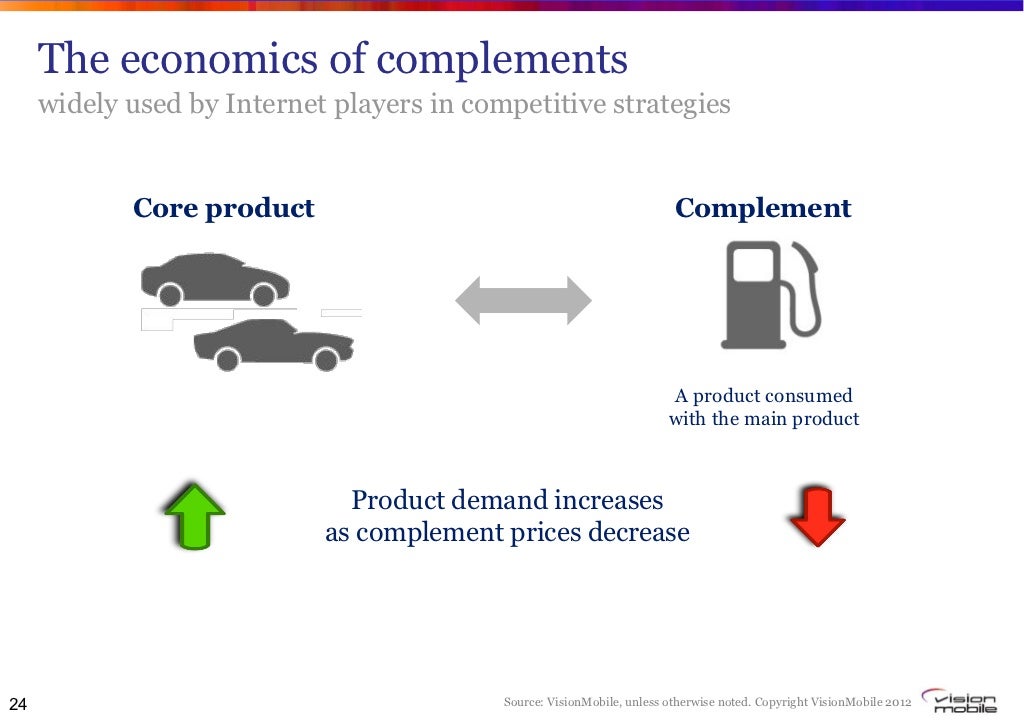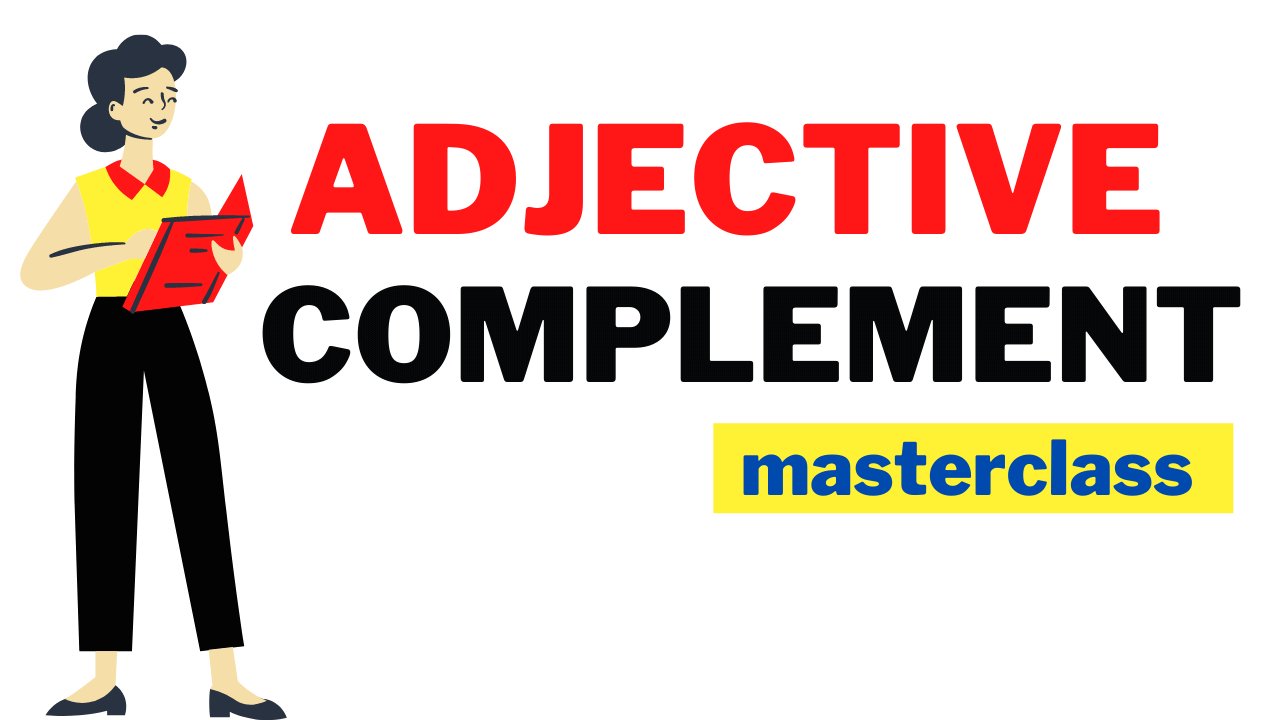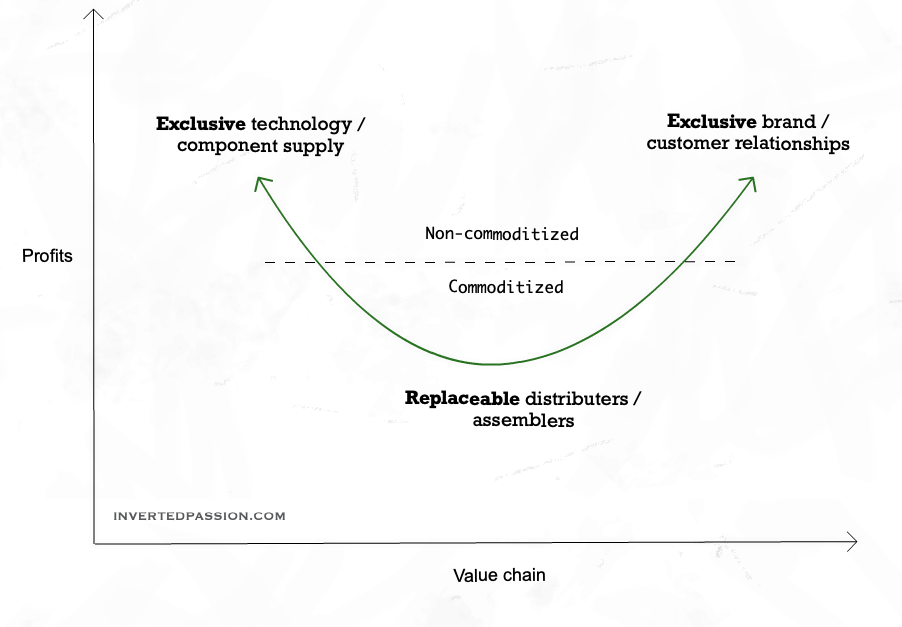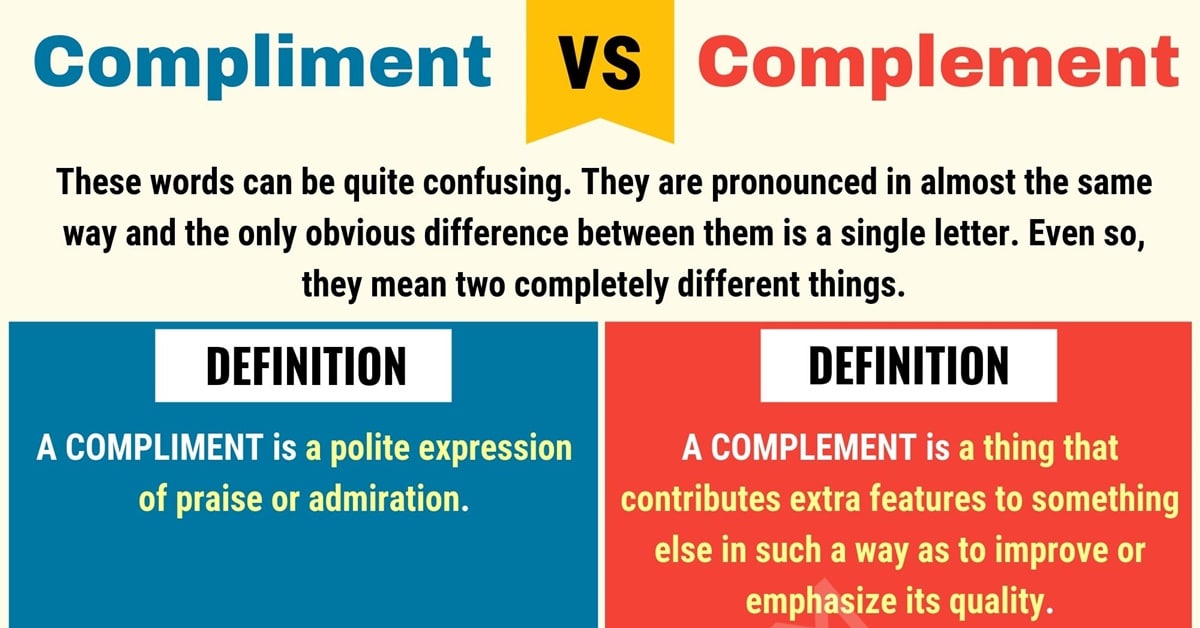
The Complement Labs Collection Medium
Commoditize your complement March 22, 2021• Education Gwen published this wonderful piece on how large companies manage the ecosystem and create scales of economy. Economy without profit, but scale none the less. This is an important concept and valuable to apply. Making money depends on how you price in market, or price out the market.

Commoditize Past Tense Verb Forms, Conjugate COMMODITIZE
A classic pattern in technology economics, identified by Joel Spolsky, is layers of the stack attempting to become monopolies while turning other layers into perfectly- competitive markets which are commoditized, in order to harvest most of the consumer surplus; discussion and examples.

Objective Complements YouTube
Commoditizing Your Compliments An OSS model competition, and some strategy bits -- 5/10/2023. David Hershey. May 10, 2023. Share this post.. It seems all these folks read the famous Strategy Letter V — open source is an excellent strategy to "commoditize your complements." For each of the sponsors of this competition, there is a very.

The economics of complements widely
Commoditize your complements (and open source software) Matthew Krupczak September 27, 2019 10 Comments The heartbleed OpenSSL vulnerability in 2014 (affecting Google, Facebook, etc.) exposed another issue: sometimes widely used open source software doesn't get the love it deserves in terms of monetary or code support from those that use it.

ADVERBIAL COMPLEMENT masterclass A complete guide
The lowest theoretically sustainable price would be the "commodity price" — the price that arises when you have a bunch of competitors offering indistinguishable goods. So, smart companies try to commoditize their products' complements. If you can do this, demand for your product will increase and you will be able to charge more and make more.

Complement Pathway Explained Epomedicine
The lowest theoretically sustainable price would be the "commodity price" — the price that arises when you have a bunch of competitors offering indistinguishable goods. So: Smart companies try to commoditize their products' complements. This idea is more important than ever in the cloud era.

Complementary Goods Graph
In this case, the truism is to commoditize your complement. Companies have an incentive to push as much capitalism as they can into things they don't make money on, and keep the capitalism away from their main products as long as they can. So eg Google don't want to commoditize maps, because they're happy having a monopoly on mapping services.

Compliment vs Complement What's the Difference? Curvebreakers
11.29.21 Why Web3 projects should commoditize the complement (the product) Nearly twenty years ago, Joel Spolsky coined a phrase that informed the decision-making of countless startups and tech giants: "commoditize the complement." In general, a company's strategic interest is going to be to get the price of their complements as low as possible.

How to your business
The lowest theoretically sustainable price would be the ""commodity price""—the price that arises when you have a bunch of competitors offering indistinguishable goods. So: Smart companies try to.

Commoditize your complements (and open source software) Matt's Tech Bytes
Commoditization could also flip the balance of software and hardware: if LLMs, the data and software, become commoditized, the hardware to train and serve them will be differentiated ( commoditize your complement ).

ADJECTIVE COMPLEMENT masterclass definition, types & examples
Joel Spolsky in 2002 identified a major pattern in technology business & economics: the pattern of "commoditizing your complement", an alternative to vertical integration, where companies seek to secure a chokepoint or quasi-monopoly in products composed of many necessary & sufficient layers by dominating one layer while fostering so much compet.

Commoditize your value chain before it commoditizes you Inverted Passion
The lowest theoretically sustainable price would be the ""commodity price""—the price that arises when you have a bunch of competitors offering indistinguishable goods. So: Smart companies try to commoditize their products' complements. If you can do this, demand for your product will increase and you will be able to charge more and make more. "

Compliment vs. Complement How to Use Complement vs. Compliment • 7ESL
"Commoditize your complement": this is a business strategy worth being familiar with. ChatGPT and LLMs just commoditized the complement of data: software. This increases the value of data, but mainly drives value accrual to the new scarce complement: semiconductors. Cars and gasoline Competition is enhanced for commoditized products.

Commoditize Your Complement Data, Software, LLMs, and Semiconductors
Smart companies try to commoditize their products' complements. If you can do this, demand for your product will increase and you will be able to charge more and make more. They don't have to achieve industry scale to achieve commoditising their complement, they just need to get sufficient scale to dampen price / opportunity. Same.

Subject Complement What is a Subject Complement? with Useful Examples • 7ESL
In business and economics, there is a concept that is often expressed with the phrase "Commoditize your complement". A complementary product is has some form of necessary connection to the product in question…the usual example is automobiles and gasoline. As Joel Spolsky puts it:

Linking Verbs & Subject Complements Curvebreakers
So: Smart companies try to commoditize their products' complements. If you can do this, demand for your product will increase and you will be able to charge more and make more. This idea is explored more in Peter Thiel's Zero to One, which posits that capitalism and competition are opposites: one generates profit, the other destroys it.